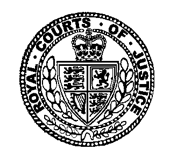 I cannot underestimate how shocking is this decision in the UK (Johns v. Derby City Council, England & Wales High Court, Queen’s Bench Division).
I cannot underestimate how shocking is this decision in the UK (Johns v. Derby City Council, England & Wales High Court, Queen’s Bench Division).
In our sister democracy, a lovely Pentecostal Christian couple were assessed by the local government as unfit to foster kids:
“Mr and Mrs Johns’ views on same sex relationships, which are not in line with the current requirements of the National Standards, and which are not susceptible to change, will need to be considered when panel reaches its conclusion.”
The British court just affirmed that preventing hypothetical discrimination against gay children justifies the blanket exclusion of mainstream Christians from foster care.
More excerpts:
(44) “Some cultural beliefs and practices are simply treated by the law as being beyond the pale.”
(93) “If children, whether they are known to be homosexuals or not, are placed with carers who, in the language used by way of description in Ms Monaghan’s written submissions, evince an antipathy, objection to or disapproval of, homosexuality and same-sex relationships, there may well be a conflict with the local authority’s duty to “safeguard and promote” the “welfare” of looked-after children. There may also be a conflict with the National Minimum Standards for Fostering Services and the Statutory Guidance. Religion, belief and sexual orientation are protected characteristics under the Equality Act 2010: see sections 4, 10 and 12. While as between the protected rights concerning religion and sexual orientation there is no hierarchy of rights, there may, as this case shows, be a tension between equality provisions concerning religious discrimination and those concerning sexual orientation. Where this is so, Standard 7 of the National Minimum Standards for Fostering and the Statutory Guidance indicate that it must be taken into account and in this limited sense the equality provisions concerning sexual orientation should take precedence.”
(102) “How is this to be fitted into the Article 9 right to freedom of religion and to manifest that religion or belief in “practice and observance”? The answer is clear from the authorities to which we have already referred, which indicate that Article 9 only provides a “qualified” right to manifest religious belief and that interferences in the sphere of employment and analogous spheres are readily found to be justified, even where the members of a particular religious group will find it difficult in practice to comply: see Sahin v Turkey (2005) 44 EHRR 99. This will be particularly so where a person in whose care a child is placed wishes to manifest a belief that is inimical to the interests of children: see R (Williamson) v Secretary of State for Education and Employment [2005] UKHL 15, [2005] 2AC 246.”
Mainstream Christian beliefs on sexual ethics are now "inimical to the interests of children."
Welcome to the Brave New World.


8 Comments